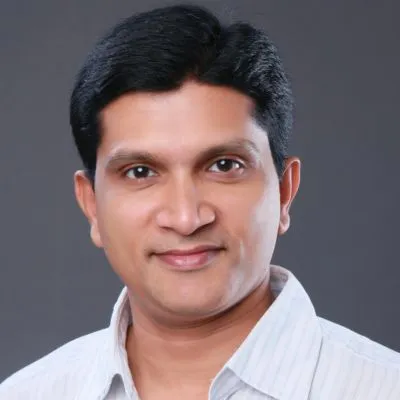Amid claims and counter-claims by lawyers for the Enforcement Directorate and AAP leader Arvind Kejriwal, the Supreme Court said Thursday that it had not made “any exception” while granting him interim bail until June 1 for the Lok Sabha election campaign. It also said that “critical analysis or even criticism of the judgment” in this regard was “welcome”.
It made these remarks a day after Union Home Minister Amit Shah told news agency ANI that grant of interim bail to Kejriwal, arrested by the ED on March 21 in the Delhi excise policy case, was “not a routine and normal judgment” and “many people in the country” believe that he had been given “special treatment”.
Countering ED claims before the bench of Justices Sanjiv Khanna and Dipankar Datta, Senior Advocate Abhishek Manu Singhvi, appearing for Kejriwal, did not name Shah but referred to the remarks of “a top minister of this government”.
Justice Khanna, heading the two-judge bench hearing Kejriwal’s petition against his arrest by the ED, said, “As far as critical analysis or even criticism of the judgment, it is welcome. There is no difficulty. You may have different viewpoints, we have no difficulty with that.”
The bench said this when Singhvi countered Solicitor General Tushar Mehta – he was representing the ED – took “exception” to Kejriwal’s reported remark that he will not have to return to jail on June 2 if people vote for the AAP.
Referring to Kejriwal’s remark, Mehta told the bench: “They (people) say that I will have to go back to jail in 20 days”.
Justice Datta said, “That is our order.”
Mehta continued: “If you vote for the broom (AAP election symbol), then I will not have to go to jail.”
To this, Justice Khanna said, “That is an assumption… Our order is very clear.”
Mehta said, “This is a slap on the system. That if you vote for me, then I will not have to go to jail on the 2nd (of June). How can that happen?”
Justice Khanna said it was “the direction of the court which should matter”.
Intervening, Singhvi said, “He wants to enter a flourish of prejudice. I didn’t think he would say this, even alleging maladies against the government. If he is going to file an affidavit, I will file an affidavit about a top minister of this government.”
It was then that Justice Khanna said “even criticism of the judgment” was “welcome”.
“As far as our order, it is very clear. We have fixed the timelines. We have said that on so and so date, he is on bail, on so and so date, he has to surrender. That is it. Our order is an order of the court. And that is an order of the apex court. If the rule of law is to be governed, it will be governed by that,” he said.
“We specifically said we are not making any exception for anybody. What we felt was justified, we passed that order,” Justice Khanna said.
“But he ought not to have said this. This is slapping the institution and I take an exception to that,” Mehta said.
Meanwhile, hearing on the ED’s objections to the maintainability of Kejriwal’s petition continued.
The bench said courts can intervene if there is violation of conditions of arrest under Section 19 of PMLA.
Justice Khanna said, “Obviously, courts can interfere. Either remand court or High Court… Article 226 remedy cannot be excluded. We don’t exercise that jurisdiction because there are alternative remedies. But we can’t overlook when there is a grave case.”
Mehta said the accused is calling upon the court to conduct a mini-trial. “Mini-trial is what the court is called upon to conduct, which we are respectfully opposing. He is saying look at this particular statement, compare it with that, they do not go together and, therefore, there is no substantive material. That’s not the scope of Your Lordships’ jurisdiction,” he said, adding that “Section 19 authority is required to decide only if there is existence of material which necessitates arrest of a person. He is not supposed to exercise either quasi-judicial or judicial powers of weighing one evidence against the other.”
The bench also posed questions to the ED on Kejriwal’s contention that witness statements which were beneficial to him were ignored and only those disadvantageous to him were used.
“Assume the investigating officer (IO) has material in possession. On the one hand incriminating, on the other exculpatory. There can’t be a dispute that the IO has to be fair. If he ignores the latter absolutely and says I have reasons (to arrest), would it not afford grounds for bail?” asked Justice Datta.
Mehta said the IO has to weigh the evidence he trusts and the court should not substitute its wisdom to come to a different conclusion at this stage.
Additional Solicitor General S V Raju, who also appeared for the ED, said it is not necessary that all the materials reflect in the opinion to arrest. He said it is enough that there is sufficient material to form reasons for arrest.
Raju said the ED had evidence to show that Kejriwal demanded a bribe of Rs 100 crore which went to the AAP for its Goa election expense and that there is “direct evidence” of his stay there in a 7-star hotel being partly funded by an accused who received a portion of the bribe.
The ASG said the AAP will be added as an accused in the case.
© The Indian Express Pvt Ltd
First uploaded on: 16-05-2024 at 13:59 IST












![Best Weight Loss Supplements [2022-23] New Reports!](https://technologytangle.com/wp-content/uploads/2022/12/p1-1170962-1670840878.png)




